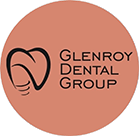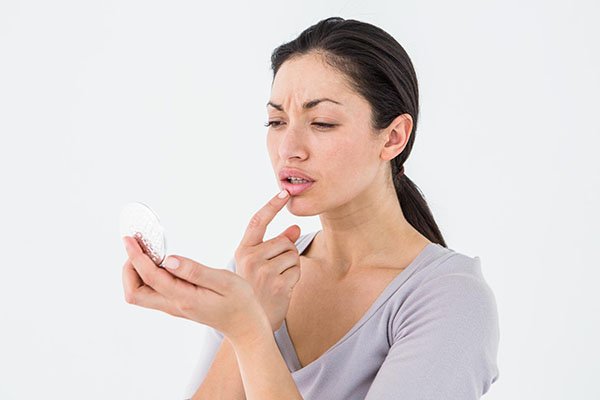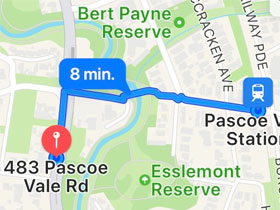 Mouth ulcers are painful areas in the mouth and gums. While usually harmless, they can be extremely painful and make it difficult to eat, drink, and brush your teeth.
Mouth ulcers are painful areas in the mouth and gums. While usually harmless, they can be extremely painful and make it difficult to eat, drink, and brush your teeth.
Mouth ulcers range in size, and the exact symptoms of the mouth ulcer will depend on what type of ulcer a person has.
Types of Ulcers
The most common ulcers are canker sores. Most are harmless and either go away or remain unchanged. However, some sores or spots can be serious and need the attention of your Glenroy Dental Group dentist.
For example, oral cancer, which can initially appear like an ulcer, may not be painful at first, but it can be deadly. Regular dental checkups are critical. If an ulcer does not heal within two weeks, visit The Glenroy Dental Group immediately!
Ulcers Caused by Canker Sores
Canker sores appear inside the mouth. They usually are small with a white, yellow or gray center and a flat red border. Rarely, canker sores can be very large with a raised border. There may be one or several ulcers and they can recur.
A canker sore usually begins as a red spot or bump. It may produce a tingling or burning sensation before other symptoms appear. Canker sores are painful.
Fortunately, most canker sores heal in 7 to 10 days, usually on their own.
Other Causes of Mouth Ulcers
There is no one particular cause of mouth ulcers. However, certain contributing factors have been identified. These include:
- Minor mouth injuries
- Some toothpastes and mouth rinses
- Food sensitivities to acidic foods and other trigger foods like chocolate and coffee
- Lack of essential vitamins, especially iron, B-12, folate, and zinc
- Allergic response to mouth bacteria
- Hormonal changes
- Emotional stress or lack of sleep
- Infections cause by fungus, bacteria, or viruses
Ulcers can also be a sign of conditions that require serious medical treatment, including:
- Celiac Disease
- Diabetes Mellitus
- Inflammatory Bowel Disease
- Behcet’s disease (which causes inflammations)
- Immune system diseases including HIV/AIDS
What Does a Mouth Ulcer Look Like?
Mouth ulcers are usually round or oval sores that commonly appear inside the mouth on the:
- Lips
- Cheeks
- Tongue
They can be white, red, yellow, or grey in colour and swollen.
Mouth ulcers shouldn’t be confused with cold sores, which are small blisters that develop on the lips or around the mouth. Cold sores often begin with a tingling, itching or burning sensation around your mouth, and are treated differently.
Old-Fashioned Remedies
One of the most common solutions to ease mouth ulcer pain is ice. Wrap an ice cube in a paper towel and hold it over the sore. Never place ice directly onto the skin!
Another remedy is to place a wet tea bag over the ulcerated area. Black tea contains tannin, which possesses pain-relieving qualities.
Over the Counter Solutions
Over the counter treatments can help with healing and pain reduction. One common pain reducing treatment is swishing your mouth with alcohol-free antibacterial rinses. These formulas not only cleanse your mouth but also soothe irritation.
Can Mouth Ulcers Be Prevented?
It may not be possible to prevent mouth ulcers, as ulcers are often caused by things beyond control (such as a family history or a medical condition).
However, the following strategies may reduce your risk of developing mouth ulcers:
- Avoid certain foods – such as spicy foods or any other foods that cause you to have mouth irritation
- Don’t chew gum
- Brush your teeth with a soft-bristled brush.
- Use toothpaste without sodium lauryl sulphate
- Reduce stress and anxiety – which may be a trigger
What You Can Do
- Schedule regular dental checkups. See your dentist for mouth sores that persist longer than two weeks, even if there is not pain. Your dentist can recognize and often diagnose the type of mouth sore or spot based on its look and location.
- See your dentist if you notice any change in your mouth, including pain, discomfort, or the presence of sores in the mouth, even if the sores are not painful.
- Keep a list of oral hygiene products (e.g. toothpaste) you use.
- Keep a diary of what you eat and drink.
- Avoid tobacco products.
- Drink alcohol in moderation
Questions or concerns? Talk to your Glenroy Dental Group dentist.
Your Dental Future with The Glenroy Dental Group
At The Glenroy Dental Group, your optimal health and happiness are our ultimate goals. We use modern technology and the latest dental techniques to ensure that your dental health and appearance are at the highest level. We want you to receive the best possible dental care with no pain or anxiety!
Our offices are conveniently located in the Pascoe Vale Road shopping strip, Glenroy, with ample parking space, we are also within easy walking distance of the Glenroy train station.
New Patients Special Offers
- Dental Exam, Scale and Clean for $99 Only
For more amazing offers, please visit our special offers page today!
Contact us on (03) 9306 6511 or book your appointment online.







